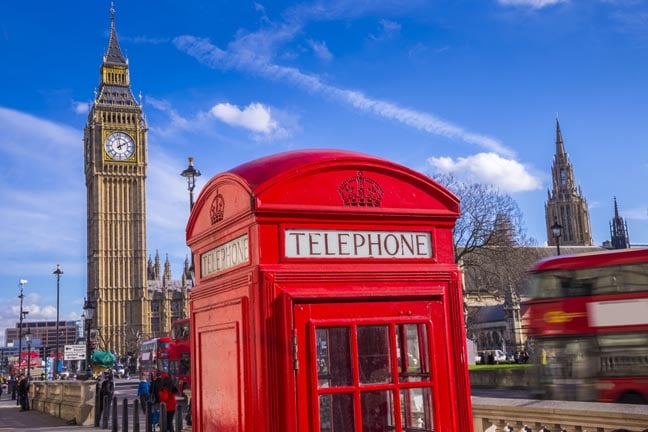Good old British ‘fair play’ is the answer to vexed Huawei question, claims security minister

Solving the Huawei 5G security problem is a question of convincing the Chinese to embrace British “fair play”, security minister Ben Wallace said yesterday without the slightest hint of irony.
During a Q&A at Chatham House’s Cyber 2019 conference, Wallace said the issue of allowing companies from non-democratic countries access to critical national infrastructure was about getting them to abide by, er, Western norms.
The former Scots Guards officer explained: “I take the view: we’re British, we believe in fair play. If you want access to our networks, infrastructure, economy, you should work within the norms of international law, you should play fair and not take advantage of that market.”
Someone speaking later in the conference, who cannot be named thanks to the famous Chatham House Rule*, later commented: “If we don’t trust them in the core, why should we trust them in the edge?”
Nonetheless, he later expressed regret at Chinese dominance of the 5G technology world, saying: “The big question for us in the West is actually, how did we get so dependent on one or another? Who is going to be driving 6G? How are we, in our society, going to shape the next technology to ensure our principles are embedded in that tech? That’s a question we should ask ourselves: were we asleep at the wheel for the development of 5G in the first place?”
The security minister also doubled down on GCHQ’s controversial and deeply resented proposal to backdoor all encrypted communications by adding themselves as a silent third participant to chats and calls – thus rendering encryption all but useless.
“Under the British government,” he said, “there is an ambition that there is no no-go area for properly warranted access when required. We would like, obviously, where necessary, to have access to the content of communications if that is properly warranted, oversighted, approved by Parliament through the legislation, of course we would. We’re not going to give up on that ambition… there are methods we can use but it just changes our focus. As long as we do it within the law, well warranted and oversighted.”
This contrasts sharply with previous statements by GCHQ offshoot, the National Cyber Security Centre (NCSC), that the government needs a measure of public support before it starts harming vital online protections. At present, Britain’s notoriously lax surveillance laws allow police to hoover up the contents of your online chats and your web browsing history, including precise URLs. This is subject to an ongoing legal challenge led by the Liberty human rights pressure group.
As the minister of state for security and economic crime, Wallace’s wide-ranging brief covers all national security matters, from terrorism to surveillance powers to seeing hackers locked up.
In his keynote address to the conference, Wallace also declared he wants the British public “protected online as well as they are offline” as he gave the audience of high-level government and private sector executives a whistle-stop tour of current UK.gov policy and spending on cybersecurity. One part of that is a push to get better security baked into Internet of Things devices, part of which is the NCSC-sponsored Secure by Design quasi-standard.
The government has also begun prodding police forces to start setting up cyber crime units, with Wallace confirming that “each of the 43 forces [in England and Wales] now have a dedicated cyber crime unit in place”. ®
* The Chatham House Rule states that what is said at a particular meeting or event may be repeated but not attributed.
READ MORE HERE
